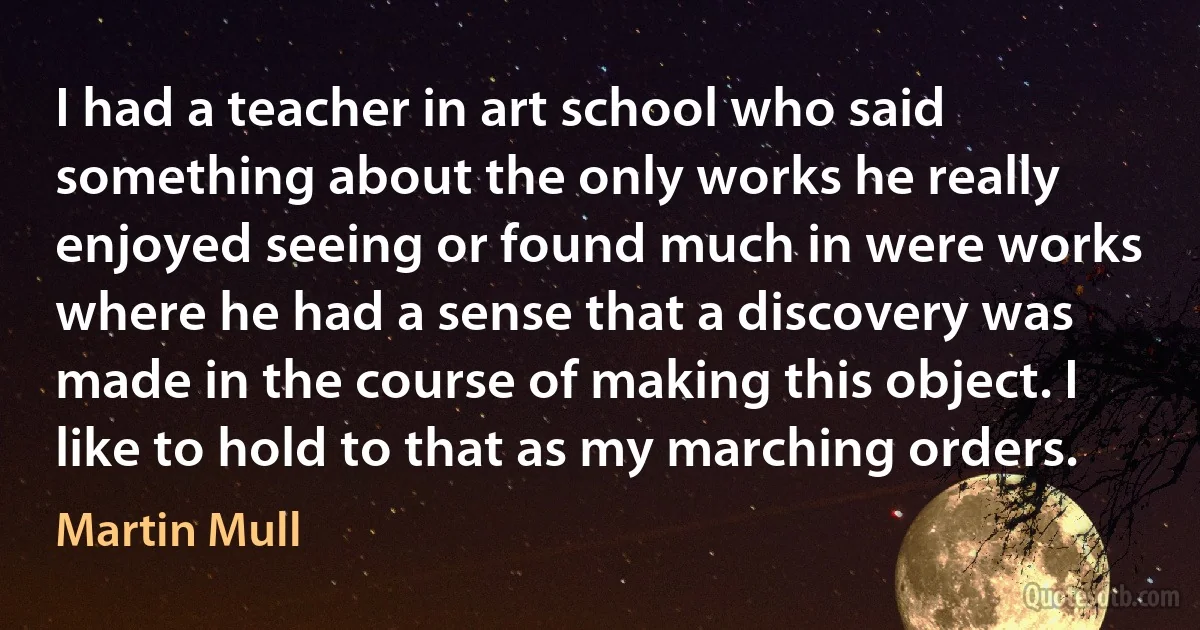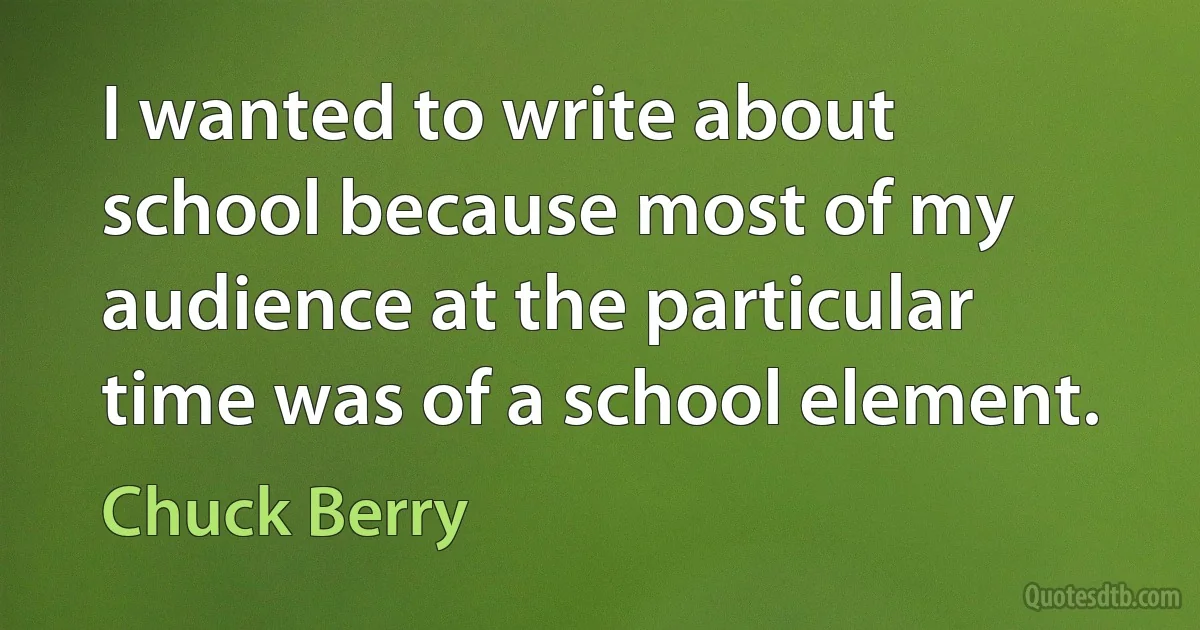School Quotes - page 92
How could I as an individual, Ernesto Guevara, accept the degree of Doctor Honoris Causa conferred by the School of Education, since the only education I have imparted has been that of guerrilla camps, harsh words, and fierce example? And I believe such things certainly cannot be transformed into a cap and gown. That is why I continue to wear my Rebel Army uniform.

Che Guevara
I knew the Classics, but disliked them. What I enjoyed were the romances of Old China, and especially stories of rebellions. I read the Yo Fei Chuan, Shui Hu Chuan, Fan T'ang, San Kuo, and Hsi Yu Chi, while still very young, and despite the vigilance of my old teacher, who hated these outlawed books and called them wicked. I used to read them in school, covering them up with a Classic when the teacher walked past. So also did most of my schoolmates. We learned many of the stories almost by heart, and discussed and re-discussed them many times. We knew more of them than the old men of the village, who also loved them and used to exchange stories with us. I believe that perhaps I was much influenced by such books, read at an impressionable age.

Mao Zedong
It is absolutely necessary for educated young people to go to the countryside to be re-educated by the poor and lower-middle peasants. Cadres and other city people should be persuaded to send their sons and daughters who have finished junior or senior middle school, college, or university to the countryside. Let us mobilize. Comrades throughout the countryside should welcome them.

Mao Zedong
My book is written, as befits such easy material, in merciless telegram style ("Axiom," "Definition," "Theorem," "Proof," occasionally "Preliminary Remark")... I hope I have written this book in such a way that a normal student can read it in two days. And then (since he already knows the formal rules from school) he may forget its contents.

Edmund Landau
By any yardstick, a higher percentage of New York City high school students are graduating now than at any time in decades. The rate has risen every year during this administration and is an important validation of our reforms, w:Chancellor Klein's leadership, and the hard work of our students, principals, and teachers. The rate obviously remains far too low, but the gains demonstrate that our hard work to raise student achievement is paying off, and we are beginning to turn around a failing system.

Michael Bloomberg
An eminent man challenged me to explain what sailing in a schooner could do for international education. In reply, I said we had at that moment the application before us for a future king of an Arab country to enter Gordonstoun. I happened to have at the school some Jews... If the Arab and one of these Jews were to go out sailing on our schooner, perhaps in a Northeasterly gale, and if they were become thoroughly seasick together, I would have done something for international education.

Kurt Hahn
We can begin, like the Scholastic masters, with an objection: videtur quod non ... ""It seems not to be true that..."" And this is the objection: a time like the present [i. e., a few years after the Second World War, in Germany] seems, of all times, not to be a time to speak of leisure. [...]
That is no small objection. But there is also a good answer to it. [...]
For, when we consider the foundations of Western European culture (is it, perhaps, too rash to assume that our re-building will in fact be carried out in a ""Western"" spirit? Indeed, this and no other is the very assumption that is at issue today), one of these foundations is leisure. We can read it in the first chapter of Aristotle's Metaphysics. And the very history of the meaning of the word bears a similar message. The Greek word for leisure (σχολή) is the origin of Latin scola, German Schule, English school. The names for the institutions of education and learning mean ""leisure.""

Josef Pieper
The Assembly passed a budget that makes the right choices for young students across the state by helping schools avoid cutting essential educational programs, laying off teachers and increasing local property taxes. Without a sound investment in our children and their education, New York would face crumbling school buildings, overcrowded classrooms, and few opportunities to excel.

Jose Peralta



